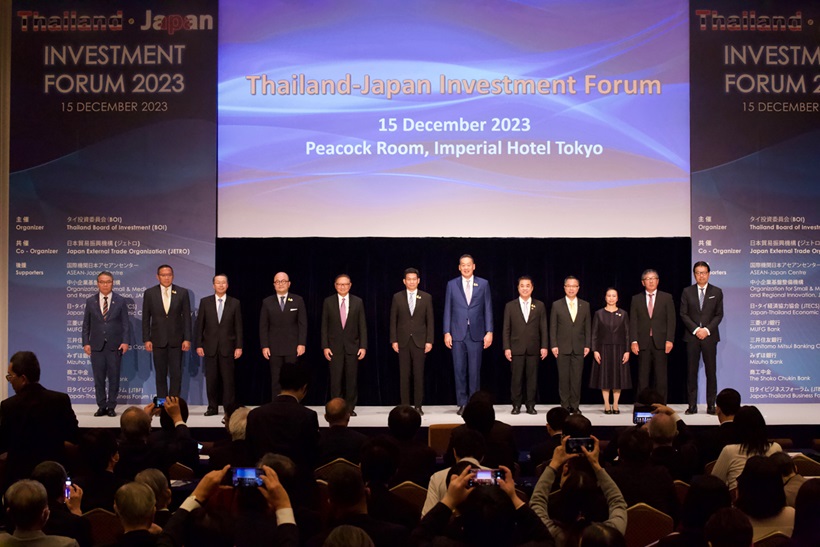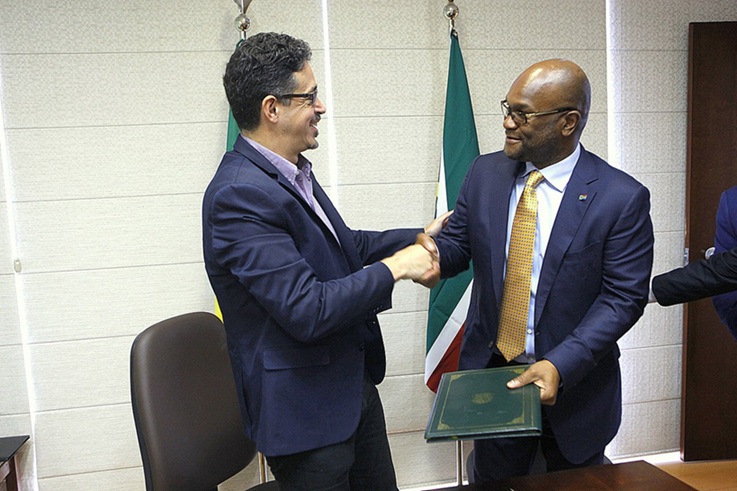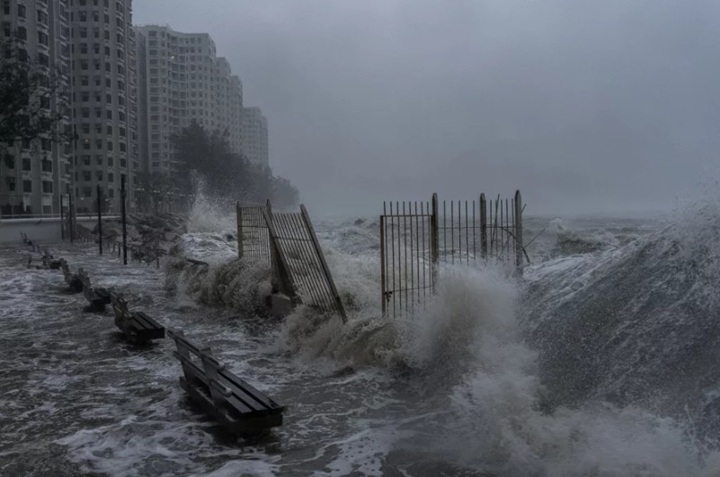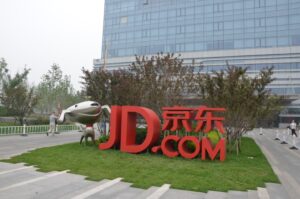In a significant step towards enhancing economic ties, Thai Prime Minister Srettha Thanakorn addressed the “Thailand-Japan Investment Forum” in Tokyo, organized by the Thailand Board of Investment (BOI). The focal point of discussion at the event was the Land Bridge mega project, a strategic initiative aiming to construct deep-sea ports in Chumphon and Ranong. The project seeks to connect the Pacific and Indian Oceans, providing an alternative route for global trade and alleviating congestion in the Malacca Straits.
Premier Srettha underscored the longstanding and robust 136-year relationship between Japan and Thailand. He commended the contributions of over 6,000 Japanese companies investing in the kingdom, fostering economic expansion. Additionally, Srettha acknowledged the presence of some 80,000 expat Japanese members contributing to Thai society.
One of the highlights of Srettha’s address was Thailand’s commitment to sustainable growth through the Bio, Circular, Green (BCG) economy, coupled with advancements in digital technology, artificial intelligence (AI), and research initiatives. These initiatives align with global trends towards environmentally conscious and technologically advanced economies.
Japan’s Minister of Economy, Trade, and Industry, Ken Saito, emphasized Thailand’s pivotal role in building industrial supply chains, especially within Japan’s automotive sector. Looking ahead to the 50th anniversary of Japan-ASEAN relations, Saito outlined three key areas of cooperation:
- Future Industries: Saito envisions Thailand as the “Detroit of ASEAN,” positioning the region as a key manufacturing hub for electric, hydrogen, and ethanol vehicles. This strategic move aims to prepare the region for the global shift towards alternative fuels, simultaneously countering competition from economic powerhouses such as China and the United States.
- Energy Stability and Carbon Reduction: Both nations prioritize sustainable development, emphasizing the need for energy stability and carbon reduction. This commitment aligns with global efforts to address climate change and promote environmentally friendly practices.
- Joint Human Resource Development: Recognizing the importance of skilled talent in driving economic growth, both nations plan to invest in joint human resource development. This collaborative effort aims to foster the skills necessary for navigating the challenges and opportunities of the evolving global economy.
The event marked a significant milestone as the first major economic forum between Thailand and Japan since the onset of the COVID-19 pandemic. The BOI highlighted the resilience of the economic partnership, showcasing the determination of both nations to explore new avenues of cooperation and economic growth. As Thailand and Japan chart a course towards a sustainable and technologically advanced future, the Land Bridge mega project stands as a symbol of their commitment to fostering global trade and innovation.
(Source: The Nation)









